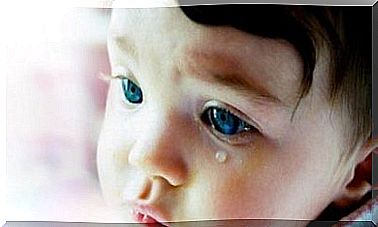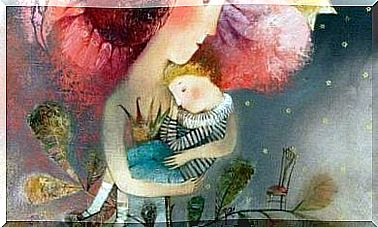Postpartum Depression
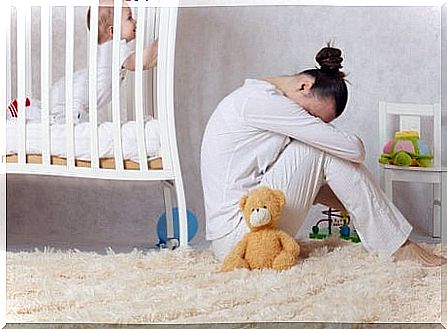
When you hear the words postpartum depression , a picture of an exhausted woman with a baby in her arms probably comes to mind. However, postpartum depression is about much more. Today we tell you how a woman’s life changes after the birth of a child and why depression can occur then.
What is postpartum depression?
Postpartum depression refers to a state of depression that begins within a month or a few months of delivery. The father may also suffer from postpartum depression, but the ailment is much more common in new mothers.
The timing, symptoms, and intensity of postpartum depression vary. A large proportion of women experience depression and mood swings that last for a few days immediately after giving birth, but they usually disappear on their own within a couple of weeks.
About 10-15% of women who give birth develop a longer-lasting and more severe depressive condition. So this is a phenomenon that affects a fairly large proportion of new mothers, which is why it is very important to talk about it. Symptoms of postpartum depression usually improve within 2 to 6 months, but some women are known to suffer from the problem for up to a year.
Causes of postpartum depression
It is not yet known why some mothers cope with mild symptoms, while some have severe and long-lasting symptoms. However, it is known that hormonal changes during pregnancy affect a woman’s mood after childbirth.
The exact causes of postpartum depression are not known, but the possibility is increased by the following factors, for example:
- Physical changes. Pregnancy changes a woman’s body in many ways. After childbirth, the cause of all these changes is out of the body, and the situation naturally requires adaptation.
- Changes in the environment. The newborn requires a lot of attention and care and easily takes away all the resources of the parents, and especially the mother. A small child changes a mother’s life in many ways, and social life and career, for example, experience a big change.
- Loss of independence and personal space. The baby needs more attention than many imagine. Because of this, the mother in particular has little personal space or time for a moment.
- Lack of sleep. It is a well-known fact that the number of hours of sleep for parents decreases with the birth of a child. Lack of sleep can lead to exhaustion, often accompanied by feelings of depression.
- Pressure to be a good mother. External advice, pressure, and beliefs affect many mothers.
- Certain diseases. For example, previous depression, bipolar disorder, or anxiety increase the risk of postpartum depression.
Also, becoming a mother under the age of 20, unplanned pregnancy, pregnancy-related complications, relationship problems, parenting burden, and various social factors such as financial difficulties or lack of support, among others, increase the risk of postpartum depression.
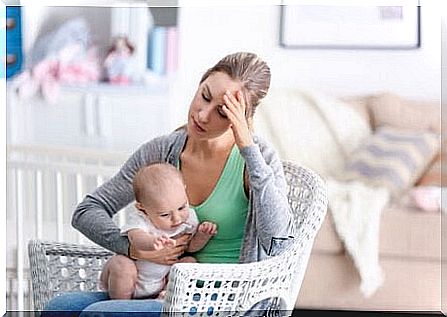
Symptoms of postpartum depression
Postpartum depression is associated with largely the same symptoms as other depressive conditions. The most common symptoms are:
- Irritability, restlessness, low mood
- Severe anxiety
- Crying
- Fatigue and unavailability
- Panic attacks
- Difficulty falling asleep and sleeping
- Changes in appetite
- Lack of interest in the child
- Feeling of guilt
- Fear of harming the child
- Poor concentration and lack of energy
- Suicidal thoughts
- In some cases, symptoms of mania
Treatment of postpartum depression
It is important to remember that postpartum depression is a more common problem than is generally imagined. Maternity is difficult and involves many changes that a woman has to adapt to quickly, which is not always easy.
It is normal to feel a little nervous and even anxious when returning home from the maternity ward. The mother may also feel irritated and easily sensitized. This kind of so-called baby blues is a common stage that disappears on its own without special treatment. If this normal stage of sensitization does not pass within a few weeks, postpartum depression is suspected.
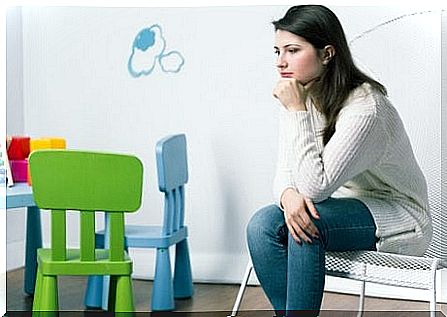
When a mother understands what she is going through, it is easier for her to get the situation under control. Whether the help comes in the form of medication, therapy and other support, it is important to follow the expert’s instructions. However, the following tips may be helpful in treating postpartum depression:
- Take advantage of the support of your loved ones. A partner, family, and close friends can help with things like housework or caring for your baby.
- Avoid making big changes. Try to avoid changes such as moving, traveling, and starting your studies. Big life changes create more stress and make you feel worse.
- Don’t be ashamed of what happens to you. Don’t hide your feelings or feel guilty about them. You have the right to be sad and feel overwhelmed by the situation.
- Rest is essential. Try to sleep while your baby is sleeping. This will help you replenish your energy stores, which in turn will increase your resilience to many things.
- Try talking to other moms about it. Many depressed mothers believe that a fresh mother should be happy and hide depression.
- There are no perfect mothers, but there are good mothers. Focus on your own recovery so you can give your child the best version of themselves. Don’t worry about your child’s attitude, as he or she will love you no matter the situation. Above all, it’s important to keep in mind that your child needs you more than anyone else in the world – this information will help you find the inner strength you need in that situation.


